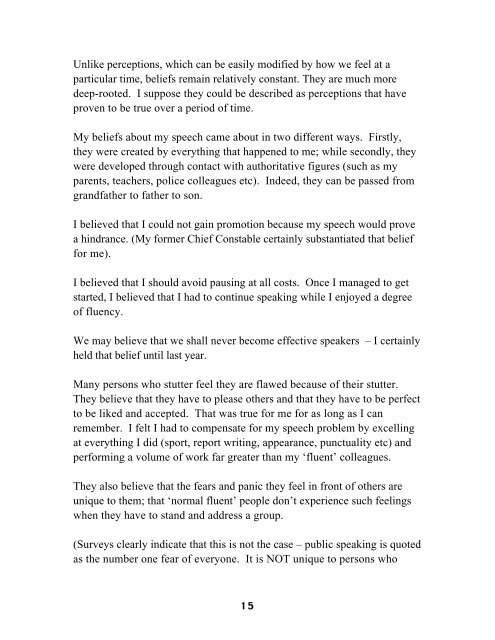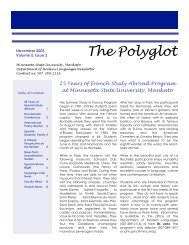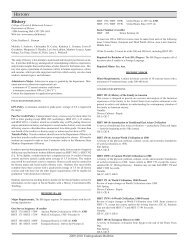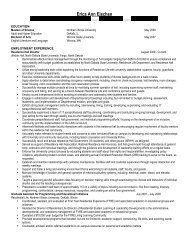TRANSCRIPT OF A PRESENTATION, BY ALAN BADMINGTON, TO ...
TRANSCRIPT OF A PRESENTATION, BY ALAN BADMINGTON, TO ...
TRANSCRIPT OF A PRESENTATION, BY ALAN BADMINGTON, TO ...
Create successful ePaper yourself
Turn your PDF publications into a flip-book with our unique Google optimized e-Paper software.
Unlike perceptions, which can be easily modified by how we feel at a<br />
particular time, beliefs remain relatively constant. They are much more<br />
deep-rooted. I suppose they could be described as perceptions that have<br />
proven to be true over a period of time.<br />
My beliefs about my speech came about in two different ways. Firstly,<br />
they were created by everything that happened to me; while secondly, they<br />
were developed through contact with authoritative figures (such as my<br />
parents, teachers, police colleagues etc). Indeed, they can be passed from<br />
grandfather to father to son.<br />
I believed that I could not gain promotion because my speech would prove<br />
a hindrance. (My former Chief Constable certainly substantiated that belief<br />
for me).<br />
I believed that I should avoid pausing at all costs. Once I managed to get<br />
started, I believed that I had to continue speaking while I enjoyed a degree<br />
of fluency.<br />
We may believe that we shall never become effective speakers – I certainly<br />
held that belief until last year.<br />
Many persons who stutter feel they are flawed because of their stutter.<br />
They believe that they have to please others and that they have to be perfect<br />
to be liked and accepted. That was true for me for as long as I can<br />
remember. I felt I had to compensate for my speech problem by excelling<br />
at everything I did (sport, report writing, appearance, punctuality etc) and<br />
performing a volume of work far greater than my ‘fluent’ colleagues.<br />
They also believe that the fears and panic they feel in front of others are<br />
unique to them; that ‘normal fluent’ people don’t experience such feelings<br />
when they have to stand and address a group.<br />
(Surveys clearly indicate that this is not the case – public speaking is quoted<br />
as the number one fear of everyone. It is NOT unique to persons who

















